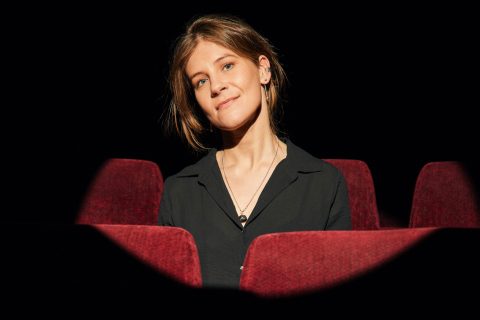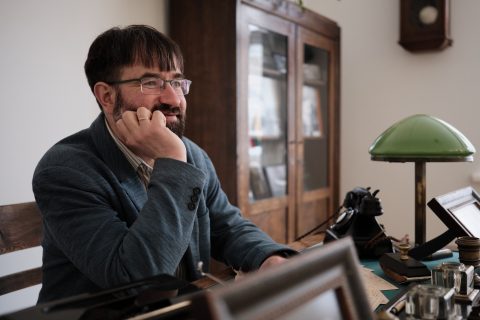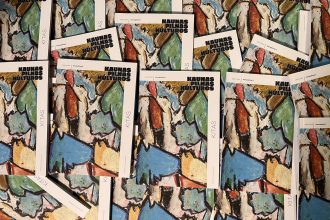In one of the first issues of our magazine, we introduced the then eleven-year-old Kaunas Cultural Centre of Various Nations and its head at the time Dainius Babilas. Seven years have passed since then! Although, of course, I visited the center in those years, for example, going to the Kaunas Photo Festival exhibitions.
On Monday morning, Eglė Rušinskaitė, who has been in charge of the institution for more than two years officially (and before that – temporarily) welcomed me into the second home of many ethnic minority communities living in Kaunas. “I grew up in Visaginas, so multiculturalism is more the norm for me than the exception,” the woman smiles. This is evidenced by her experience. Having spent a long time with the Red Cross, helping refugees, in this center where she is engaged in cultural and educational activities now, she feels that she continues her mission naturally and is not at all upset when the work does not end at five in the evening. The more people, sounds, and cultures in the center, the better proof that it is successful.
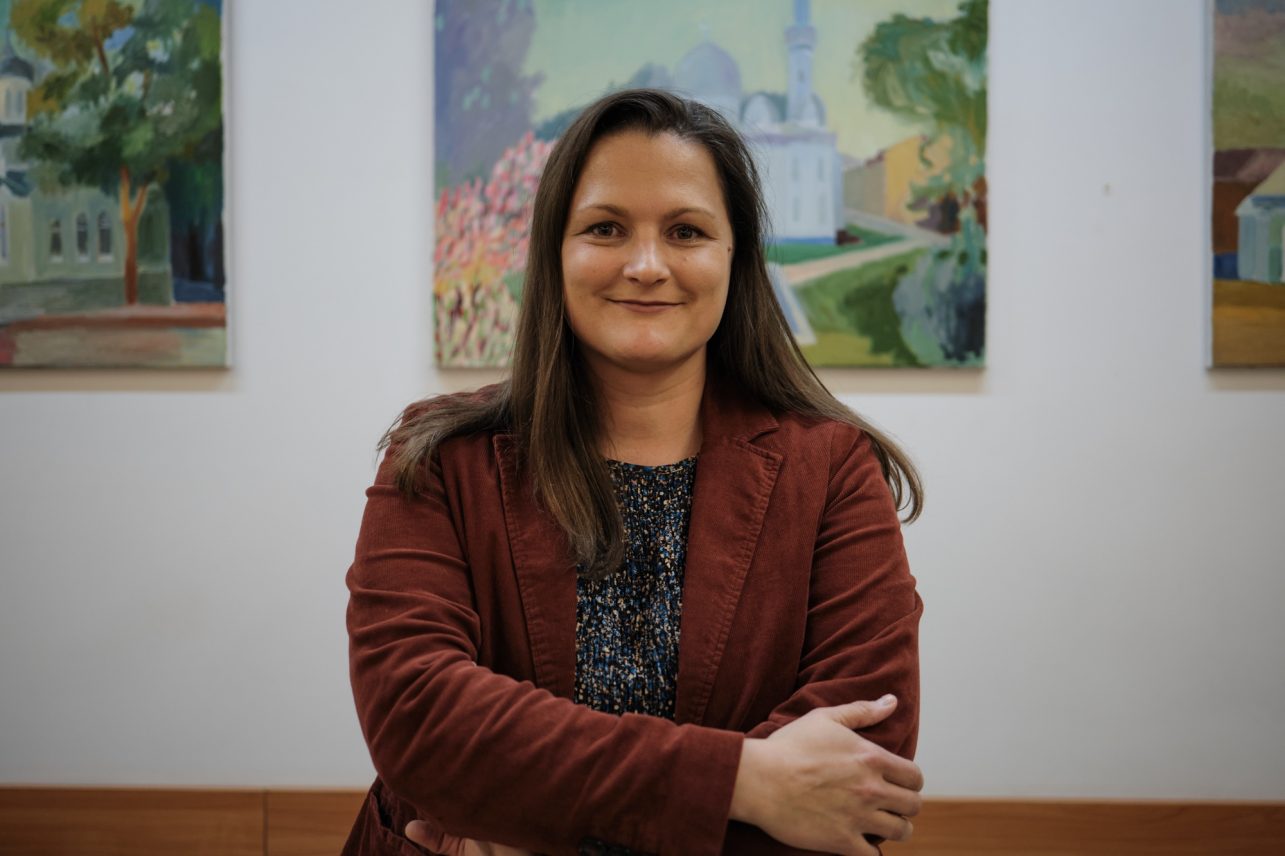
I tried to visually assess whether the center has changed much since January 2016, when I visited for the first time. Not really! And what about your work, do you feel any rapid changes in terms of results?
It may not be obvious visually, but we joke that the center is very mobile. We either have a training, a rehearsal or a concert. The picture is constantly changing, although we are not pushing the walls. New activities are emerging: the need for traditional communities to learn the Lithuanian language has increased. We also organize training with partners SPEAK, and Red Cross. We also have new communities. Kyrgyz and Moroccans get together very actively and, of course, the number of Ukrainians in Kaunas has increased significantly. Individual people also come, and we introduce them to the already existing communities and invite them to activities. You know, for example, the Kyrgyz have always been here, they sell cars here. In the past, they were not looking for a cultural life here but then families appeared, relatives came, and the community started to expand so, there is a desire for joint activities, and the wish to nurture their culture. These are the natural changes in Lithuanian society.
And how are things with those who may have ended up in Lithuania against their will, hoping to get to the West, but got stuck here? Do you have any connection with them?
Integration and cultural activity are later stages. However, we actively cooperate with both the Red Cross and Siena Group. Those refugees who settled in Kaunas studied the Lithuanian language with us. However, our goal is not individual work, but bringing together and supporting communities. Of course, there are all kinds of initiatives, for example, we had a very successful Taiwanese cultural event. The organization itself does not exist yet, only a group of enthusiasts. It’s very rewarding when we can help create that connection and empower people.
To what extent do the communities exchange experiences or attend each other’s events?
It depends. At some events, people like to be with their own people, but public concerts or lectures are usually attended by different communities. Those who have been working here for ten years or more know each other well. As a center, we also try to include everyone, not only Kaunas residents. The Garden of Cultures Festival, which takes place in the garden of the Historical Presidential Palace of the Republic of Lithuania, is one of those events where communities have the opportunity to spend some time together, and the city has the opportunity to create a cultural dialogue and feel that diversity.
All those 154 cultures? What does the number in your centre’s Facebook account represent?
In 2011, there were 154 people of different nationalities in Lithuania. Of course, in the case of our centre, the number is more symbolic. We unite 12 official organizations, but we also communicate with those that have their own premises, for example, the Poles of Kaunas. I would say that there are 18 communities in total. On International Mother Language Day you can hear approximately this many languages. By the way, last year we organized even more than 154 events [laughs].
And how many languages do you know and use at work?
I always try to communicate in Lithuanian. Even one word learned is a huge thing. But I also speak English, Russian, and some German and I understand Ukrainian. I have studied Persian, and I still recognize the letters.
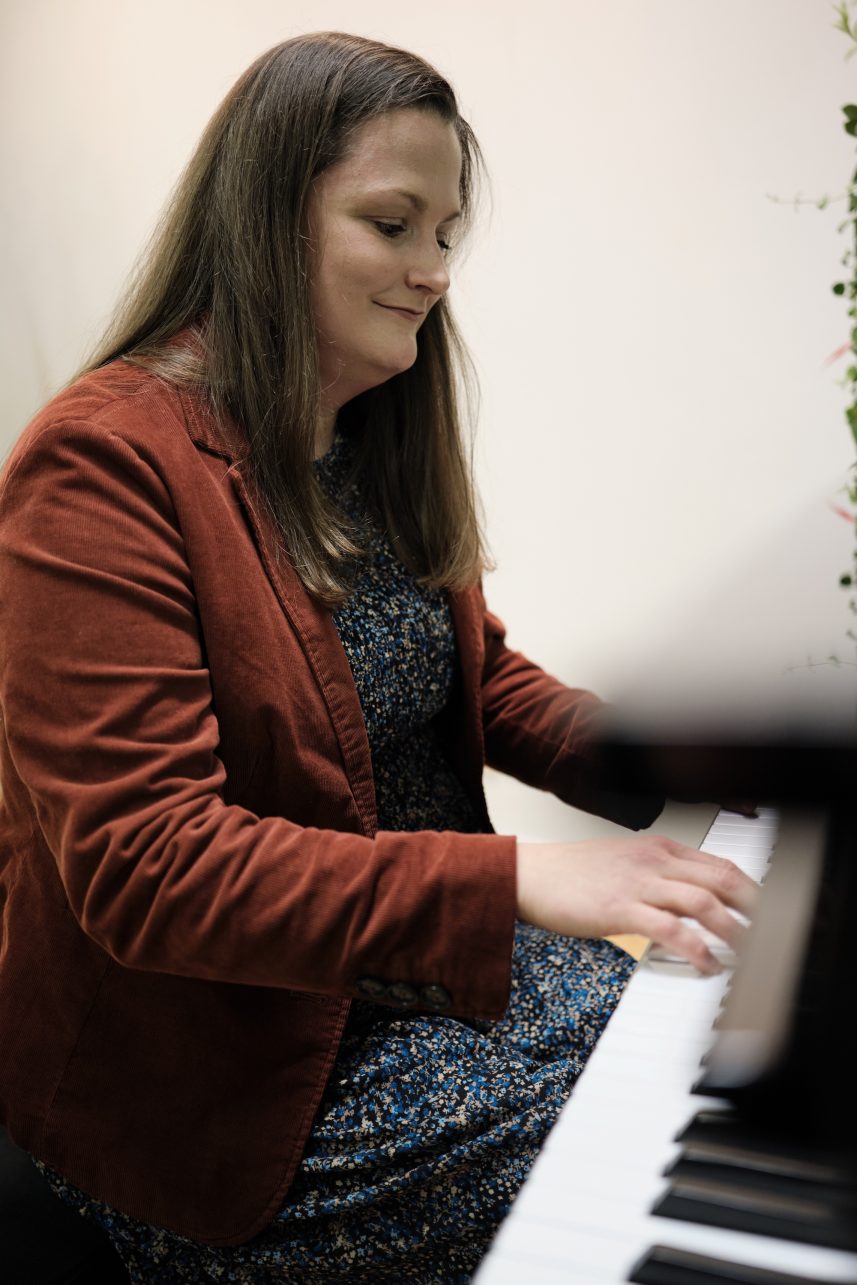
In this issue, we talk about music that can be considered a universal language, and you have a lot of it in your center. I also believe that another element that always facilitates communication is food. Are there many opportunities to taste food from different cultures?
During the Garden of Cultures, we try to offer the participants a variety of traditional foods. Someone usually prepares pilaf outside. Every year it is made by a different nation: Uzbeks, Tatars, or Kyrgyz. The dish might be the same, but each nation prepares it differently. It both unites and shows differences.
Just like fairy tales where the motive and the moral are similar, but the heroes and other elements are different and unique in each nation.
Yes, exactly. And this is precisely the project that we carried out last year. It was called The Fairy tales of Kaunas’ Nations. During the event series, we collected these fairy tales and Debesų ganyklos publishing house published them in the original languages and in Lithuanian. And now Kulturos pasas contains the educational activity by the director Loreta Vaskova, which brings these fairy tales to life.
How did the ethnic communities living in Kaunas react to the Russian invasion of Ukraine?
Like the Lithuanians, everyone was shocked at first. And later, support through activities, and involvement in events for Ukrainians began. Our centre joined other initiatives, for example, the art fair held in the spring. We had art and animal-assisted therapy sessions. And there was a more personal story. A volunteer from Ukraine was supposed to come to us through the Erasmus+ program. We waited, the war started, and we didn’t hear from her anymore. About five days later she wrote, “Are you still waiting for me?” She was a huge help to us, also in terms of communication. Unfortunately, the volunteer did not feel safe enough in Lithuania. But now we have a volunteer from Armenia.
Is it important to participate in international programs?
Indeed, Erasmus+ helps to build an international team. We also belong to the Roots & Routes International association, we participate in youth projects about hate speech, and employment, and about interdisciplinary exchanges with artists. Academics learn to break certain rules and to create freely with others in the here and now. It is nice that we have the opportunity to involve different people through such projects, both members of national communities and Lithuanians, who discover mutual connections while traveling to projects. A couple of years ago, we sent a Roma, a Lithuanian, and an Indian to one project, they became friends. That friendship is beautiful, it helps break stereotypes.
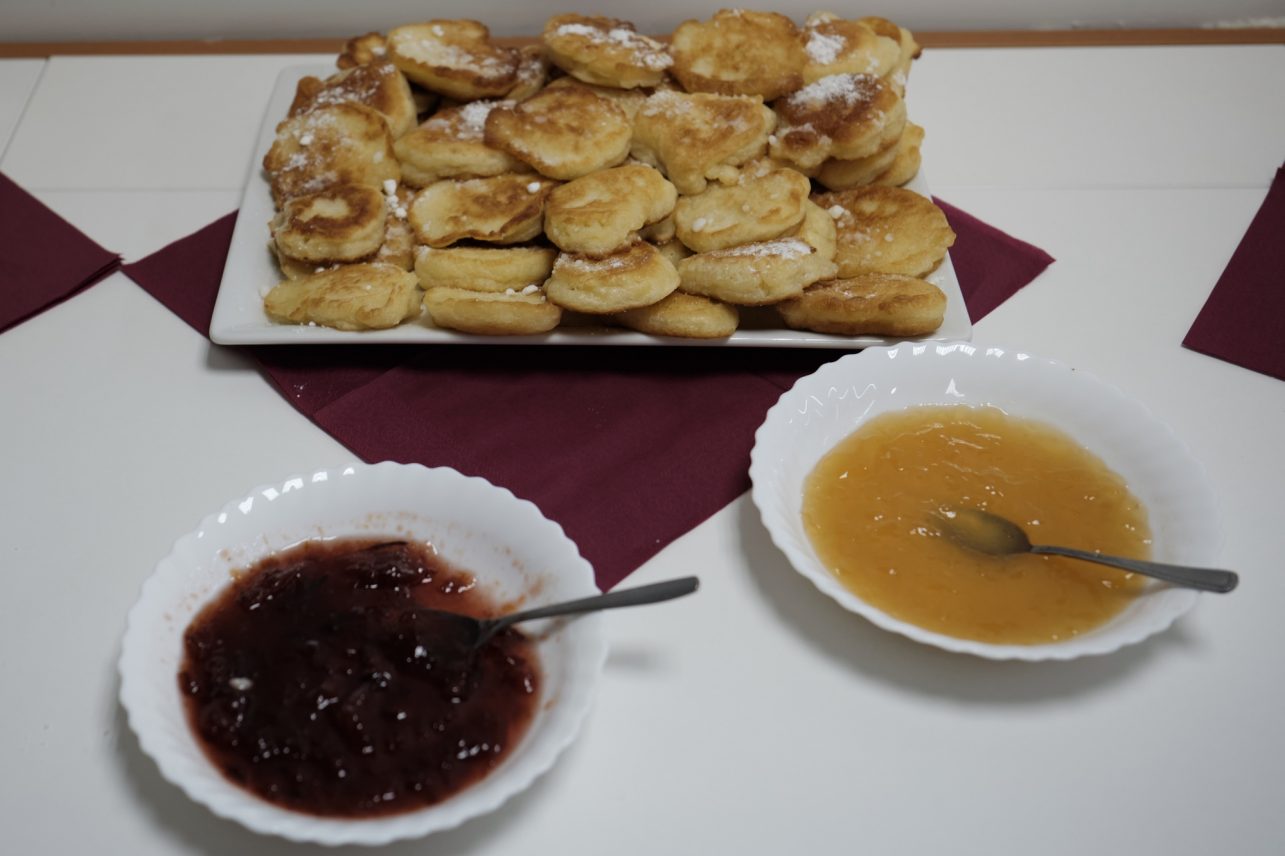
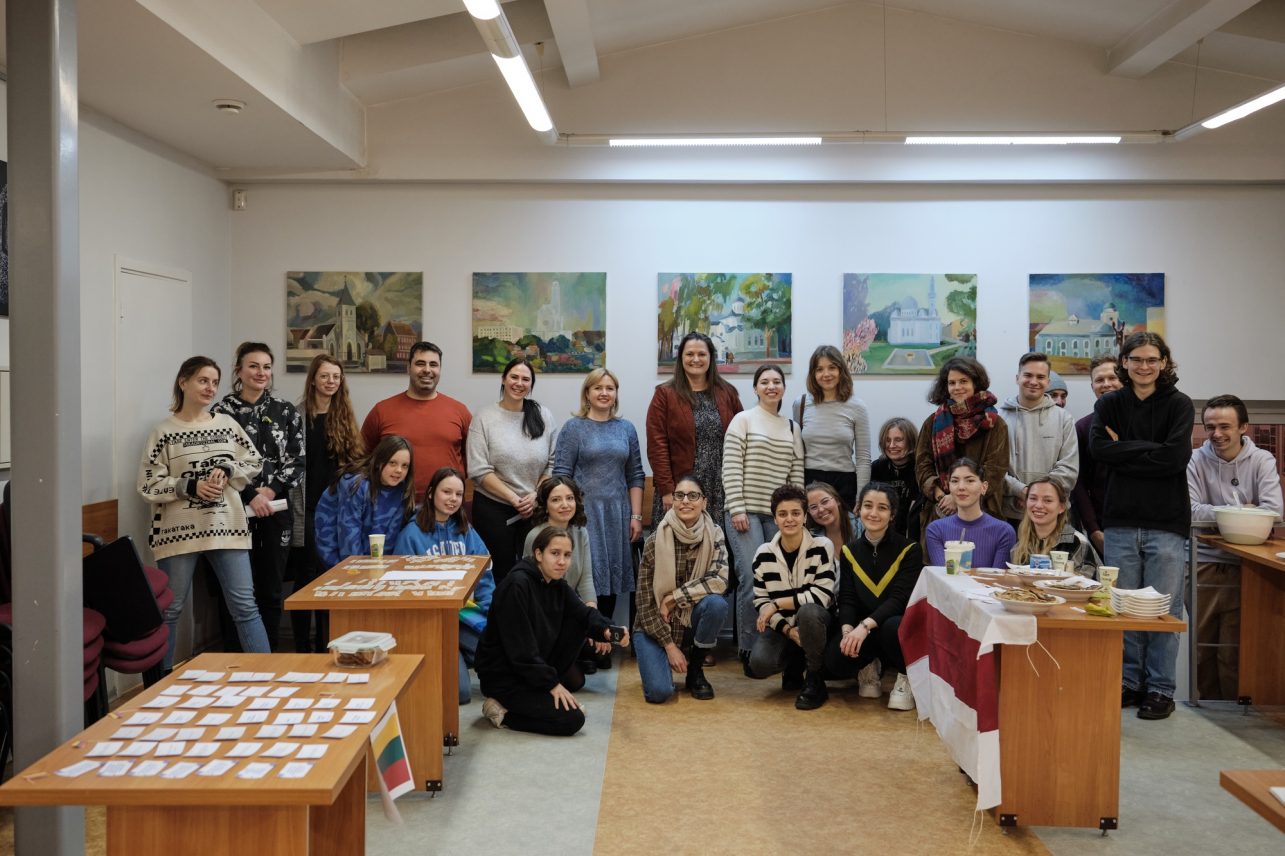
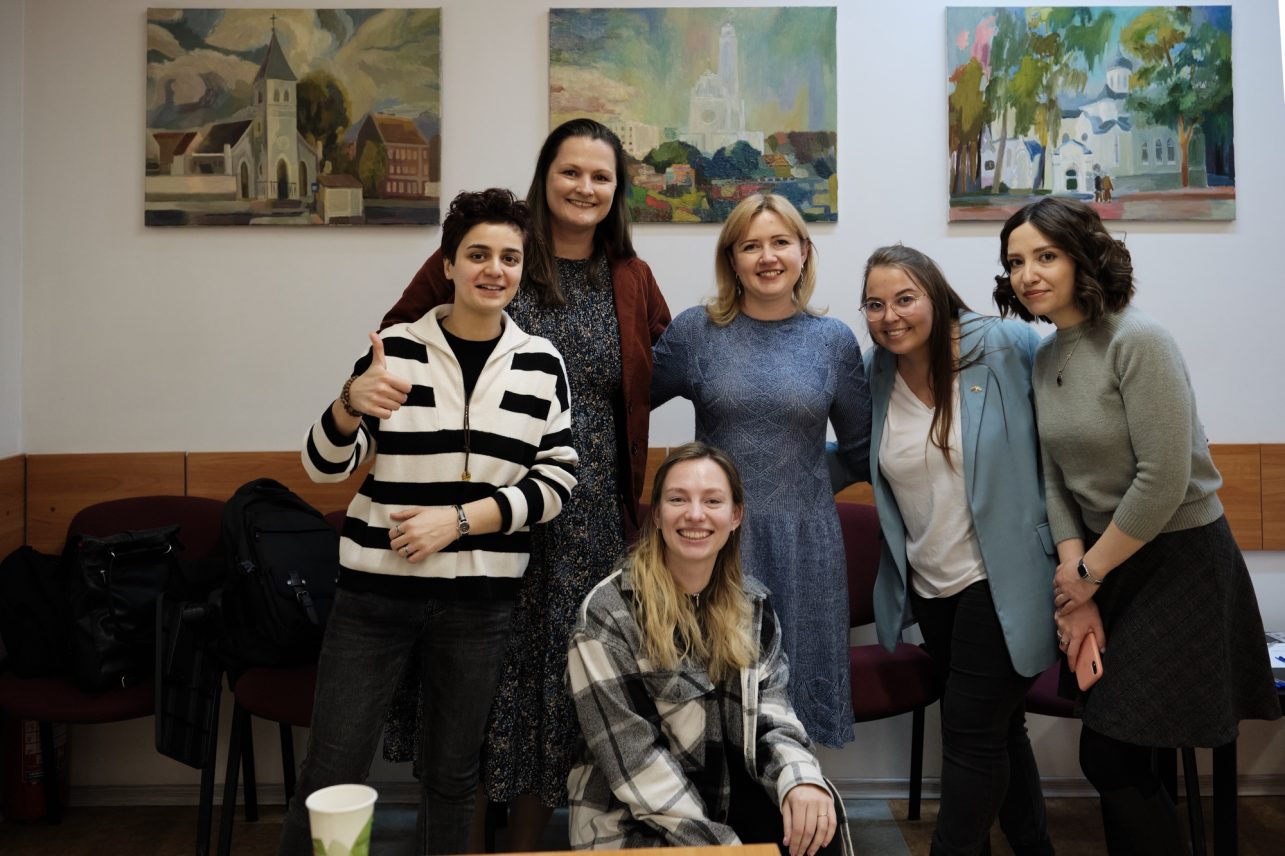
We keep talking about projects and concerts, but the community is also about birthdays, weddings, and other celebrations. I imagine those happen as well. Maybe during them, you are no longer employees, but guests?
Of course, traditional weddings happen, and we are happy to participate. Sometimes we just become family members. We can contribute not only with our premises but also with training, or just advice. We want people to feel good so that they can write a project themselves, get a business license and engage in their favourite activity in accordance with the law. We help as much as we can, although human capabilities are limited.
Are the administrative issues the biggest challenge?
Partly yes, but public sentiments and attitudes are equally important. It is a never-ending process. As much as we can, we change attitudes by sharing positivity, bringing people together, and inviting them to events. But sometimes, when reading the comments after a bigger festival, it becomes clear that a lot of work still needs to be done for that “other” to become our own.
It seems that the model of your centre in Kaunas is quite unique. Are there such centres for different ethnic communities elsewhere in Europe?
There are cultural centres, but they are not dedicated to communities that gather on a basis of their nationality or ethnicity. There are integration centres that also offer cultural activities. But as far as I have seen and visited, there are no such centres for various nations elsewhere. Sometimes Westerners frown upon our activities. We have a specific understanding here in Lithuania (although there is no longer a law on national minorities) that there are residents, there are citizens, there are ethnic minorities, and foreign migrants. Elsewhere, everyone is just a resident, there aren’t any of these national divisions.
In order for the line between the other and your own to disappear faster, I invite you to announce which events of the centre the readers will be able to attend soon.
One of the things that make our centre stand out is the fact that we celebrate the New Year several times. On the spring equinox, March 21, we will traditionally celebrate the Persian New Year, Nowruz. The most recent new activity is Irish dance classes that take place once a month and are led by a Lithuanian-speaking Czech woman! We will be waiting for those who are interested on March 4, April 1, and May 13. In addition to that, Ukrainian concerts are held every month, and Armenians are planning to present their sheet music books. In August, we will be expecting a large international youth team (part of the aforementioned interdisciplinary exchange). We are also planning an event for World Day for Cultural Diversity for Dialogue and Development, and we will share the information about it on our Facebook page.

